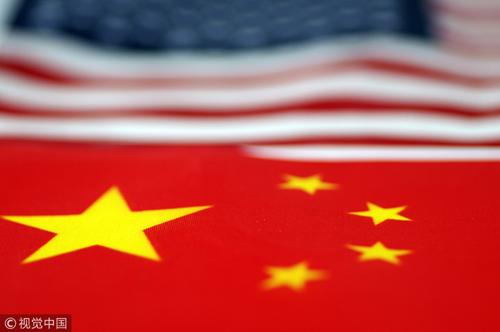Beijing, Washington eye fresh talks


[Photo/VCG]
China and the United States discussed a road map on Tuesday for the next stage of trade talks during a phone conversation between Vice-Premier Liu He, US Treasury Secretary Steven Mnuchin and US Trade Representative Robert Lighthizer.
They exchanged views on implementing the consensus recently reached by the two countries' leaders, and set a timetable and road map for the next round of economic and trade negotiations, the Ministry of Commerce said in a statement.
Earlier this month in Argentina, top leaders from China and the US agreed to halt the imposition of new tariffs. For 90 days, the two nations are expected to push forward trade talks, with the aim of canceling all additional tariffs imposed over the past several months, according to the ministry.
Wei Jianguo, former vice-minister of commerce, said a step-by-step procedure is needed to settle problems between the world's two largest economies.
"First, for solvable problems, address them as soon as possible. Second, for those that can't be quickly solved, raise them in advance. Most importantly, China will not compromise its core interests."
He stressed that a rules-based multilateral governance system should be established, adding, "Amid 40 years of reform and opening-up, we are moving in this direction, and I am optimistic and confident."
Huo Jianguo, a senior researcher at the Center for China and Globalization, said: "To ensure talks between China and the US go smoothly, both sides need to make some concessions. So far, the Chinese government has already started deepening structural reform."
Tang Haoxuan, chairman of trading company Beijing Fueta International Co, said the US needs to make a compromise in future talks. He said US companies benefited from trade with China.
In October, US businesses paid $6.2 billion in tariffs, including $2.8 billion in new tariff terms on products that have been levied by the US government, according to a report by Tariffs Hurt the Heartland, a US advocacy group against tariffs.
The report concluded that the US was still importing while paying more, but exports were decreasing.
Charles Boustany, a spokesman for the group, said in a news release that US consumers were bearing the costs and were paying more than ever before.
The Federal Reserve Bank of Boston said in a report: "Looking ahead to 2019, retailers expressed significant uncertainty about the impact that tariff increases will have on prices. Beyond some point, they will pass the increases on to consumers."







